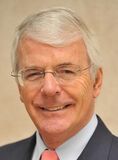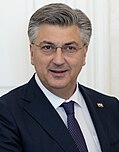2009 Steinborgian federal election: Difference between revisions
AneurysmTom (talk | contribs) No edit summary |
AneurysmTom (talk | contribs) No edit summary |
||
| Line 181: | Line 181: | ||
| after_party = | | after_party = | ||
}} | }} | ||
Federal elections were held in Steinborg on 25 October 2009 to elect the members of the 21st [[Federal Parliament]]. All 200 memeber of the Federal Parliament were elected in 15 multi-member constituencies. | |||
The economic recession that started in 2006 was the biggest issue of the election. The coalition government consisting of the Christian Democratic Forum and the Liberals failed to properly deal with the crisis and the recession went on to impact the Steinborgian economy to election day and beyond. As a result, the coalition government was languishing in the polls since almost the beggining of their term. The opposition parties, and especially the Social Democratic Party and the Worker's Party, took advantage of the negative economic situtation, heavily criticizing the government and making economic reform a central theme of their campaign. | |||
In a historic vote, the parties of the coalition government were decimated, losing 60% of their previous vote share and seats. The Christian Democratic Forum failed to place first or second in an election for the first time in its history. The Social Democratic Party emerged as the relative winner of the election, while the Worker's Party made the biggest gains. Three new parties, the Alternative, the People's Party and New Democracy entered parliament for the first time and they perfomed better than opinion polls predicted. | |||
Ants Raud, the leader of the Social Democratic Party, successfuly negotiated a coalition government with the Worker's Party and was sworn in as Paalik on 28 November 2024. | |||
Revision as of 12:57, 12 August 2024
| ||||||||||||||||||||||||||||||||||||||||||||||||||||||||||||||||||||||||||||||||||||||||||||||||||||||||||||
All 200 seats in the Federal Parliament 101 seats needed for a majority | ||||||||||||||||||||||||||||||||||||||||||||||||||||||||||||||||||||||||||||||||||||||||||||||||||||||||||||
|---|---|---|---|---|---|---|---|---|---|---|---|---|---|---|---|---|---|---|---|---|---|---|---|---|---|---|---|---|---|---|---|---|---|---|---|---|---|---|---|---|---|---|---|---|---|---|---|---|---|---|---|---|---|---|---|---|---|---|---|---|---|---|---|---|---|---|---|---|---|---|---|---|---|---|---|---|---|---|---|---|---|---|---|---|---|---|---|---|---|---|---|---|---|---|---|---|---|---|---|---|---|---|---|---|---|---|---|---|
| Registered | 69,371,263 | |||||||||||||||||||||||||||||||||||||||||||||||||||||||||||||||||||||||||||||||||||||||||||||||||||||||||||
| Turnout | 50,232,794 (72.4%) | |||||||||||||||||||||||||||||||||||||||||||||||||||||||||||||||||||||||||||||||||||||||||||||||||||||||||||
| ||||||||||||||||||||||||||||||||||||||||||||||||||||||||||||||||||||||||||||||||||||||||||||||||||||||||||||
Federal elections were held in Steinborg on 25 October 2009 to elect the members of the 21st Federal Parliament. All 200 memeber of the Federal Parliament were elected in 15 multi-member constituencies.
The economic recession that started in 2006 was the biggest issue of the election. The coalition government consisting of the Christian Democratic Forum and the Liberals failed to properly deal with the crisis and the recession went on to impact the Steinborgian economy to election day and beyond. As a result, the coalition government was languishing in the polls since almost the beggining of their term. The opposition parties, and especially the Social Democratic Party and the Worker's Party, took advantage of the negative economic situtation, heavily criticizing the government and making economic reform a central theme of their campaign.
In a historic vote, the parties of the coalition government were decimated, losing 60% of their previous vote share and seats. The Christian Democratic Forum failed to place first or second in an election for the first time in its history. The Social Democratic Party emerged as the relative winner of the election, while the Worker's Party made the biggest gains. Three new parties, the Alternative, the People's Party and New Democracy entered parliament for the first time and they perfomed better than opinion polls predicted.
Ants Raud, the leader of the Social Democratic Party, successfuly negotiated a coalition government with the Worker's Party and was sworn in as Paalik on 28 November 2024.







